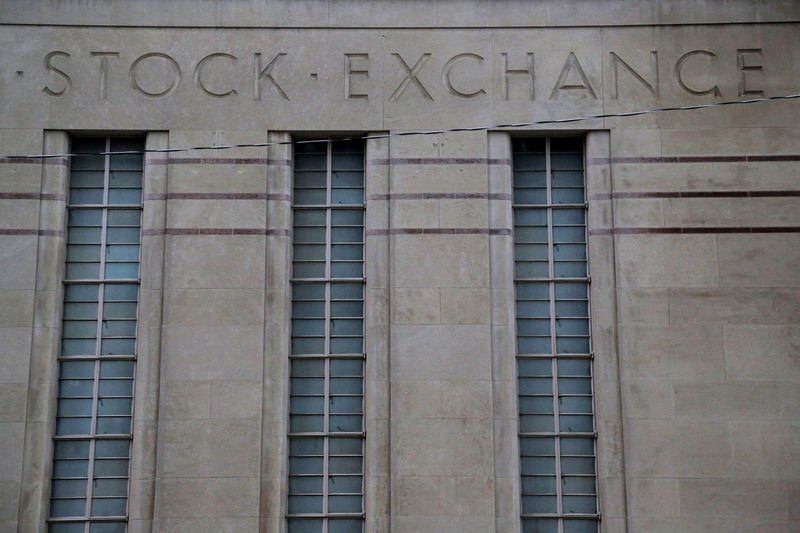China’s Xi speaks with Trump by phone, discusses Taiwan and bilateral ties
Investing.com - Canada’s main stock exchange settled down on Wednesday, after Bank of Canada kept its benchmark interest rate unchanged at 2.75%, with Governor Tiff Macklem highlighting persistent uncertainty around U.S. trade policy and signs of underlying inflation pressure.
By 12.05 ET, the S&P/TSX 60 index standard futures contract was down by 8.84 points, or 0.54%.
The S&P/TSX composite index was down 170 points or 0.62% at 27,369.96.
Central bank remains cautious as it navigates a fragile economic landscape shaped by tariffs, volatile global growth, and evolving inflation dynamics.
Meanwhile, traders are keeping tabs on trade developments, with an August 1 deadline for Canada to reach a deal with the U.S. to avert sweeping "reciprocal" tariffs mere days away. If Ottawa fails to secure a new pact with Washington, Canada faces a 35% tariff on its goods.
U.S. stocks down
U.S. stocks were lower on Wednesday, with Federal Reserve keeps rates steady. But two governors break rank for first time since 1993.
The Dow Jones Industrial Average lost 171.71 points, or 0.38%,the S&P 500 index lost 4.3 points, or 0.07%, but the NASDAQ Composite gained 31 points, or 0.15%.
The main averages slipped on Tuesday, with the benchmark S&P 500 and tech-heavy NASDAQ Composite backing away from recent record highs.
Trade talks still ongoing
Beyond ongoing trade talks with Canada, a fresh round of trade negotiations in Sweden between the U.S. and China failed to result in a major breakthrough.
But both sides described their two days of discussions, which were aiming to help soothe possibly damaging tensions by seeking an extension to their ongoing 90-day trade truce, as constructive.
Trade talks have been a key focus of the Trump administration in recent days, most notably with the president notching a framework deal with the European Union on Sunday.
Meta, Microsoft headline earnings slate
Elsewhere, attention has been on the busiest week of the earnings season. As it currently stands, 199 S&P 500 companies have reported their quarterly results, and nearly 82% have beaten earnings expectations, according to FactSet data.
Wednesday sees the release of the first batch of results from key members of the so-called "Magnificent Seven" group of mega-cap tech stocks.
Facebook-owner Meta Platforms (NASDAQ:META) and Microsoft (NASDAQ:MSFT) will be in the spotlight Wednesday, followed by Apple (NASDAQ:AAPL) and Amazon (NASDAQ:AMZN) on Thursday.
Microsoft’s and Meta’s earnings after the bell are slated to be accompanied by returns from other names, including chip designer Arm Holdings (NASDAQ:ARM) and trading platform Robinhood Markets (NASDAQ:HOOD).
Fed to conclude latest meeting
The Federal Reserve concludes its July policy meeting later in the session, and the U.S. central bank is widely expected to leave interest rates unchanged at a range of 4.25% to 4.5%.
Many Fed officials, including Chair Jerome Powell, have recently indicated that a more cautious approach to future rate actions is warranted, citing a desire to see how Trump’s aggressive tariff policies impact the wider economy.
This stance has drawn the ire of the president, who has called on the Fed to quickly ratchet down rates to help boost growth.
Investors will also have a chance to assess the first reading of second-quarter gross domestic product, with economists expecting the world’s biggest economy to return to growth of 2.5% during the April to June period, following a contraction of 0.5% in the first quarter.
A monthly reading of private payrolls is also tipped to rise by 77,000 in July after sliding by 33,000 in the previous month. The numbers from ADP (NASDAQ:ADP) will serve as a precursor to the all-important nonfarm payrolls reading due out on Friday.
Gold steadies
Gold prices steadied Wednesday as investors weighed persistent U.S. trade uncertainty and awaited the Federal Reserve’s policy decision later in the day.
At 06:39 ET, Spot Gold edged up 0.1% to $3,328.91 an ounce, while Gold Futures also ticked 0.1% higher to $3,384.05/oz.
Bullion saw modest gains in the previous session, supported by trade uncertainty ahead of the August 1 tariff deadline set by President Donald Trump.
However, the commodity has fallen around 2% in the past week as recent U.S. trade progress has eroded demand for haven assets.
Crude slips lower
Elsewhere, oil prices slipped, handing back some of the previous session’s sharp gains as traders waited for developments surrounding the increased pressure on Russia to end the war in Ukraine.
At 06:40 ET, Brent futures dropped 1.1% to $70.93 a barrel, and U.S. West Texas Intermediate crude futures fell 1.0% to $68.50 a barrel.
Both contracts had settled on Tuesday at their highest since June 20, having surged more than 3%, in the wake of Trump announcing he would start imposing additional measures on Russia if it did not make progress on ending the war within 10 to 12 days, shortening the earlier 50-day deadline.
